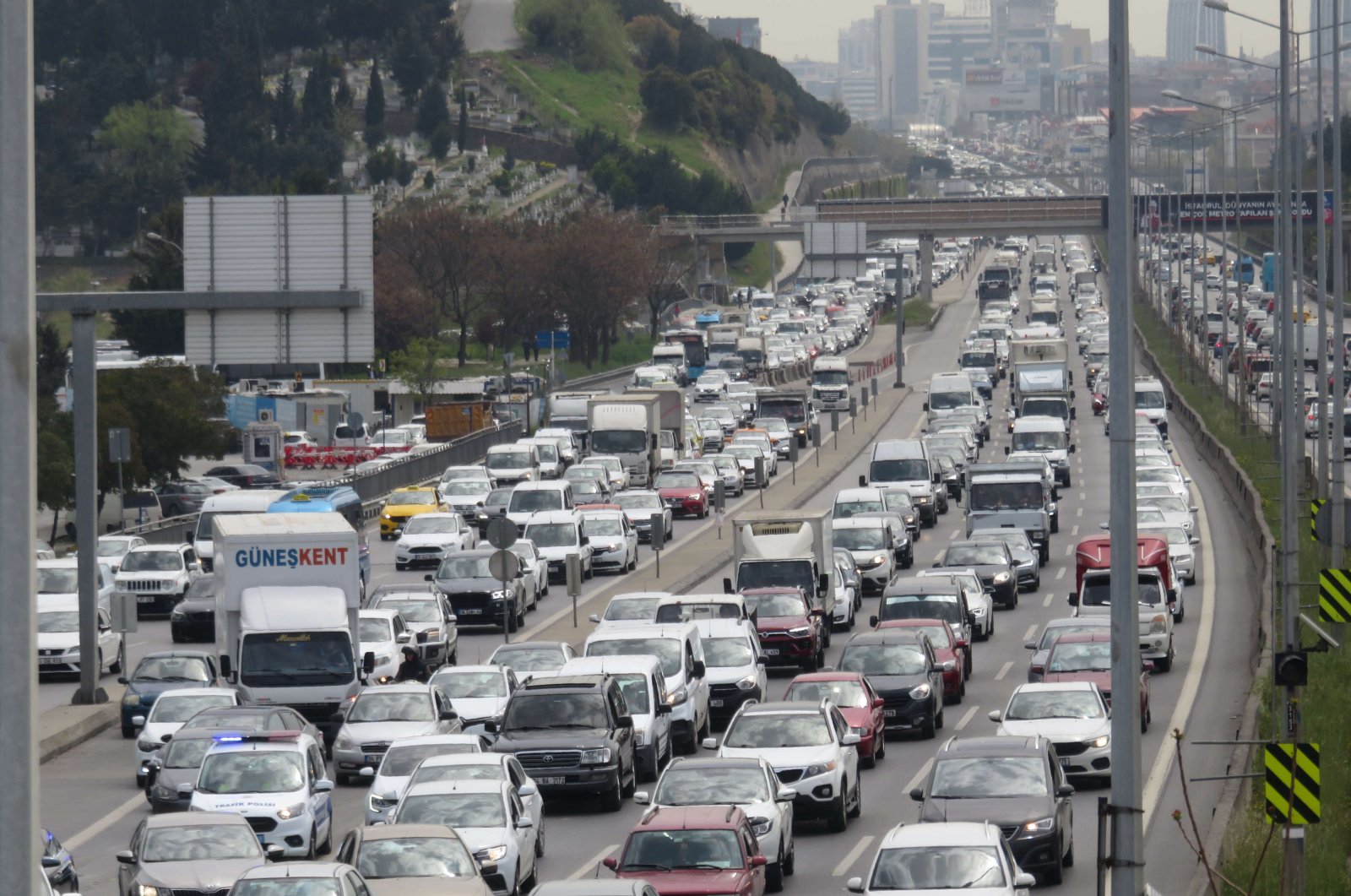With only hours left to the start of a full lockdown for 17 days to curb the coronavirus pandemic, stress is palpable among millions. Some are seen heading to salons to get their “final” hair cuts before barbers join other businesses in the lengthy shutdown, while others frantically rush to apply for exemption documents so they can continue working in their farms or fields. TVs air long ques in front of liquor stores, which by Presidential Decree, shall be banned from selling alcoholic beverages throughout the lockdown.
But the biggest frenzy is possibly in Istanbul, the country’s most populated city with more than 15 million people. The city, which has the highest number of weekly coronavirus cases, witnessed almost an exodus, with everyone looking to reach a secluded vacation resort in the south or paying a visit to their relatives in other cities, a tradition normally reserved for Ramadan Bayram (Eid al-Fitr).
This sudden mobility, on the other hand, worries experts, who fear that people coming together, reuniting with others in different cities, may increase the number of cases again.
Professor Mustafa Necmi Ilhan, a member of the Health Ministry’s Social Sciences Board which advises the government on COVID-19 measures, says the lockdown does not mean a “holiday.” “The way to decrease the number of cases is by not getting together to make a crowd. We should not consider the full lockdown as an opportunity for a vacation or visiting our families in other cities,” he told Demirören News Agency (DHA) Wednesday.
Yet, this lockdown is apparently a time for Istanbulites to start the Bayram holiday earlier. After all, they won’t be able to spend time with their relatives in Anatolian cities during the three-day Bayram over which the shutdown will be in force. Others prefer small towns, villages, summer residences with courtyards, over the suffocating concrete jungle of the city where people can barely step out for a time under the sun without risking curfew violations. As of Wednesday noon, a time when the traffic is usually at its minimum, long traffic queues were evident on the roads leading to other cities, from the west to the east.
WATCH: Turkey 2021: Infection, oppression and stagnation
At the July 15 Democracy Bus Terminal, people’s rush to leave the city was more obvious, as passengers formed queues to buy tickets. The sudden interest drove up the ticket prices while bus companies announced additional trips in the face of the huge demand. “It is like Bayram,” Servet Zengin, a ticket seller, told DHA. This is also the last opportunity for bus companies to make profits as they will be forced to work at half the capacity during the lockdown. On a normal day, some 600 buses operate between Istanbul and other cities but this reached 1,200 as of Wednesday.
WATCH: A Perfect Storm for Turkish Economy | Real Turkey
One of the most popular destinations among Istanbulites is summer residences in Trakya (Thrace), a region west of the city that is home to three provinces, near the border with Bulgaria and Greece. Roads connecting Istanbul with Edirne, Tekirdağ and Kırklareli were lined with holidaymakers as of Wednesday.
“At this point, we should stay at home, with our family or alone and not consider visiting our relatives. People should remain where they are and comply with rules. We have to reduce mobility and a lockdown will help this. If travels, mobility increase, if we value our personal pleasure above the common public safety, it is likely that we will see a surge in cases even during and after lockdown,” Ilhan said. He said Thursday was chosen as the beginning of lockdown, “not for people to endanger themselves but be prepared.” “Every place with a crowd, mobility is under coronavirus infection risk,” he warned.
He added that the mass mobility is apparent in other areas too, like the Anadolu Highway that connects western provinces to the Anatolian heartland. A busy mountain pass in the northern province of Bolu, had long lines of vehicles, heading from west to north and south, to inner regions of Turkey. In Çanakkale, which follows Istanbul as the province with the highest number of average weekly cases, holidaymakers rushed to Bozcaada, a popular resort island in the northern Aegean Sea. Ferries carried hundreds of vehicles between the mainland and Bozcaada throughout the day while the ferry operator decided to launch additional trips to the island.
The lockdown may be futile, for other reasons, too. According to labor unions federation Turk-Is, 16 mn industrial workers are exempt from the mobility bans. One wonders whether the virus is only contagious in liquor stores, but not in factory place.
Mosques, to, shall remain open. This means that any citizen, stopped by the police, could claim she is going for prayers.
There is another reason why the lockdown may fail. On Wednesday night, Health Minister Koca admitted that Turkey is running short of vaccines, urging the people to strictly abide by mobility restrictions and transmission safeguards “for another two months”, after which apparently, there will be bountiful number of jabs.
He also declared that the pause between Pfizer-BioNTech shots will be widened to 6-8 weeks from 4 to save on vaccines. Turkey has contracted for 50 mn doses of Russian Sputnik V, which shall arrive between May and October, if he is to be believed.
Experts claim it will take at least until October for Turkey to reach herd immunity.
To really compound Turkey’s health crisis, Minister Koca also declared that in addition to South African and Brazilian variants, the Indian variant, too, has been diagnosed in 8 patients in Istanbul.
Unless these patients are the only hapless souls, the Indian variant now has free ride on the back of lockdown travelers throughout Anatolia.
Follow our English language YouTube videos @ REAL TURKEY: https://www.youtube.com/channel/UCKpFJB4GFiNkhmpVZQ_d9Rg
And content at Twitter: @AtillaEng
Facebook: Real Turkey Channel: https://www.facebook.com/realturkeychannel/
